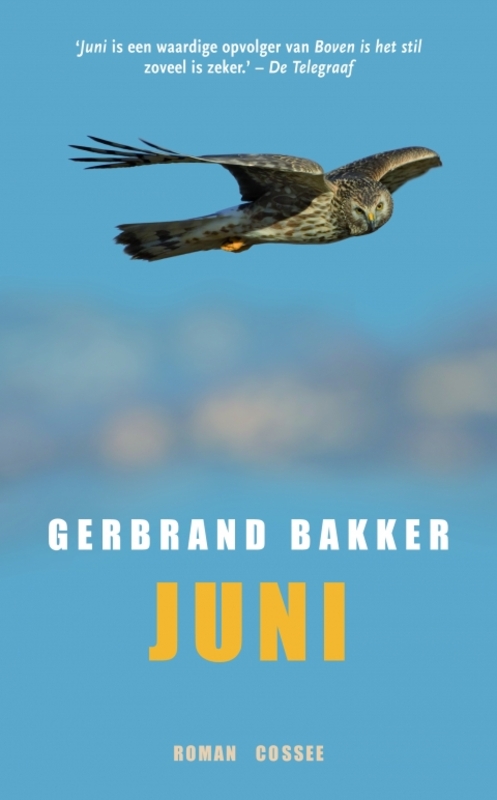
During a visit from Queen Juliana to a village in North Holland a tragic accident occurs which many years later still divides the Kaan family. In his masterful second novel Gerbrand Bakker creates a vivid portrait of this remarkable family and the farm where they have lived for generations.
On a summer’s day, June 17th 1969, everyone is gathered in front of the Polderhuis to welcome Queen Juliana. The young sons of farmer Kaan wave their flags enthusiastically. Just as the monarch is getting into her car to leave, their mother and little Hanne arrive late – the Queen strokes the little girl’s cheek and regally offers Anna Kaan her hand. It would have been an unforgettable day of celebration if only the baker hadn’t been running late with his deliveries and knocked down little Hanne, playing on the roadside, with his brand-new VW van.
Years later Jan Kaan arrives from the island of Texel on a hot day in June in order to tidy his sister’s grave, and is overcome again with grief and silent fury. Isn’t it finally time to get to the bottom of things? Should the permit for the grave be extended again? And why won’t anyone explain his little niece Dieke why grandma has been lying on hay in the shed for a day and a half nursing a bottle of eggnog and refusing to see anyone?
'The event hanging over Gerbrand Bakker's watchful new novel is, as he writes near the end of the book, "the kind of story that lasts a person's whole life". Bakker's prose is as straight and constrained as the Dutch flatlands, and full of painful detail. The rusty ironwork on a balcony railing crumbles to the touch, the pages of a notebook feel brittle in the dry air. Everything on the farm, from the sheep waiting to be buried to the clapped-out car disintegrating in the field, goes uncared for, suspended by a terrible lethargy. The novel's strength is its parched stillness. Bakker conjures the attenuated atmosphere of an endless summer day - the one the members of a family are living through now, and the one four decades ago that still has them in its grip. This is a tender and traumatic portrait, showing how the past is not a foreign country.' - The Economist